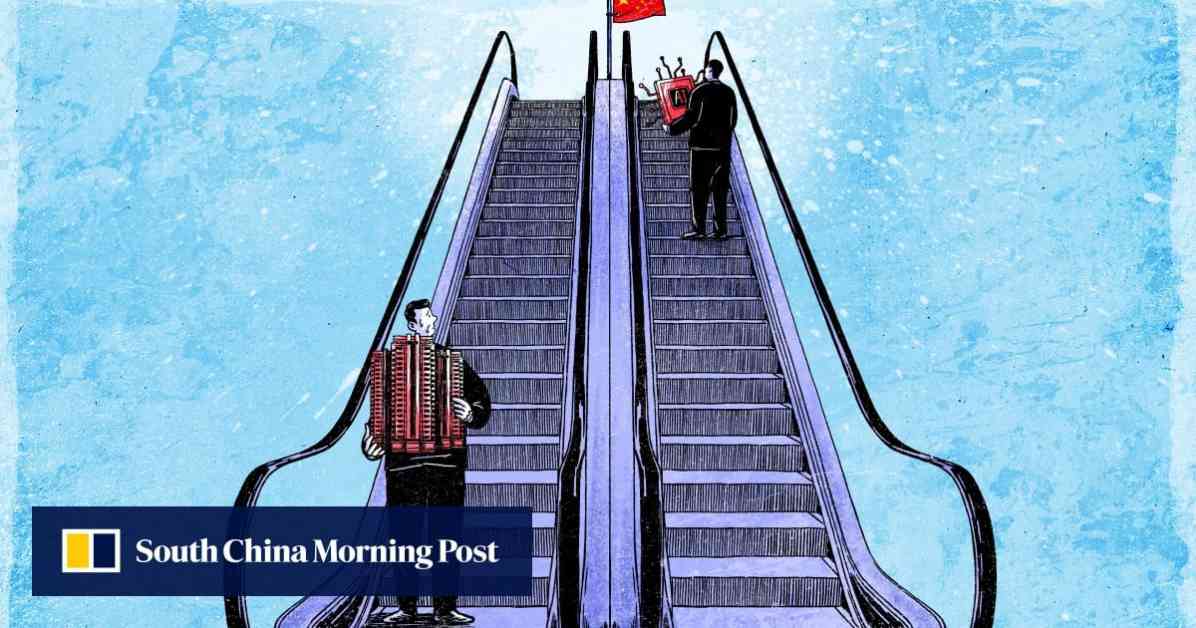As China’s political elite convene for the annual legislative sessions, the focus shifts to the forces shaping the country’s economic policies for the upcoming year. In the latest installment of our series, we delve into the sectors poised to lead China’s economic growth and those facing challenges in this period of transition.
When news broke of President Xi Jinping’s meeting with top business leaders, speculation abounded about the guest list. The attendees would provide insights into which industries were on the rise and which were on the decline in China’s evolving economy. A stark contrast emerged between this year’s attendees and those at a similar event in 2018.
True to expectations, representatives from leading technology companies dominated the meeting, alongside figures from the agriculture and consumer goods sectors. The absence of real estate delegates raised eyebrows, signaling a departure from the sector’s once prominent position. The industry’s ongoing struggles amidst a challenging market and heavy debt load made their exclusion unsurprising.
As China’s policymakers gather to outline this year’s policy agenda, the spotlight shines on boosting the private economy, a key item on the docket. However, not all players in the private sector are poised to benefit equally from government support. While the spotlight often falls on the state-owned enterprises (SOEs) versus private sector debate, some analysts argue that the shift between traditional and emerging industries, regardless of ownership, is the crux of China’s economic transformation.
Emerging Trends in China’s Economy
The evolution of China’s economic landscape is evident in the changing dynamics of key industries. Technology firms have emerged as frontrunners, driving innovation and growth in the digital age. The dominance of these companies at high-level meetings underscores their pivotal role in shaping China’s economic future.
Meanwhile, traditional pillars like real estate have faced headwinds, grappling with market uncertainties and mounting debt pressures. The absence of real estate representatives at recent gatherings reflects the sector’s shift from a position of strength to one of vulnerability. As the economy navigates this transition period, the fortunes of different industries diverge, highlighting the need for strategic realignment and adaptation.
Industry experts emphasize the importance of agility and innovation in navigating China’s evolving economic landscape. Adapting to changing market dynamics and consumer preferences is crucial for businesses seeking to thrive in a rapidly transforming environment. By identifying emerging trends and capitalizing on new opportunities, companies can position themselves for success in the shifting economic terrain.
The Road Ahead: Navigating Economic Restructuring
As China charts its course for economic recovery and growth, the focus turns to fostering a conducive environment for innovation and entrepreneurship. Balancing support for established industries with incentives for emerging sectors is key to sustaining long-term economic vitality.
Government policies play a pivotal role in shaping the trajectory of different industries, influencing investment decisions and market dynamics. By promoting a level playing field and encouraging competition, policymakers can drive innovation and productivity across sectors.
The shifting landscape of China’s economy underscores the need for strategic planning and proactive adaptation. Businesses that embrace change and embrace new opportunities are poised to thrive in the evolving economic landscape. As the country embarks on a new phase of economic restructuring, the winners and losers will be determined by their ability to anticipate trends, capitalize on emerging opportunities, and navigate the complexities of a rapidly changing market.
In conclusion, China’s economic transition presents both challenges and opportunities for businesses across various industries. By staying attuned to emerging trends, embracing innovation, and adapting to evolving market dynamics, companies can position themselves for success in the ever-changing economic landscape. As policymakers and industry leaders collaborate to shape the future of China’s economy, the winners will be those who seize the moment and chart a course towards sustainable growth and prosperity.



























